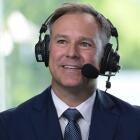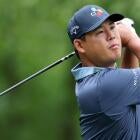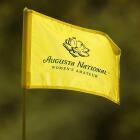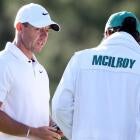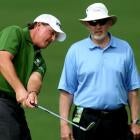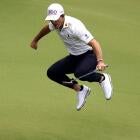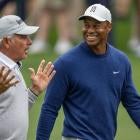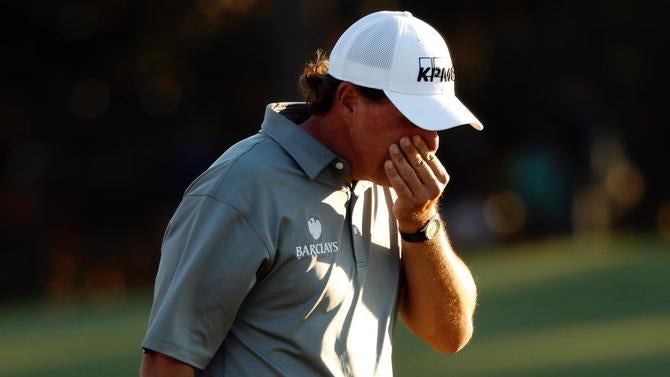
Phil Mickelson pulled driver when he should have hit 4-iron, and his name is being dragged through the news for it. The Securities and Exchange Commission has filed an insider trading complaint in which it names Mickelson as a relief defendant but does not charge him with a crime.
A "relief defendant" is one who benefits from illegally obtained information "but is not directly accused of wrongdoing," according to MarketWatch.
The gist of Mickelson's involvement is that he made nearly $1 million in profit on an insider trading tip provided to him by gambler William "Billy" Walters -- with whom he placed wagers with previously -- according to the complaint.
"The SEC has now completed its investigation into that investment and has concluded that Phil Mickelson did not engage in any wrongdoing," said Mickelson's attorney, Gregory Craig, in a statement to Golf Channel. "The SEC has filed a civil complaint against certain individuals, including an acquaintance of Phil's, but that complaint does not assert that Phil Mickelson violated the securities law in any way. On that point, Phil feels vindicated.
"At the same time, however, Phil has no desire to benefit from any transaction that the SEC sees as questionable. Accordingly, he has entered into an agreement with the SEC under which he will return all the money he made on that 2012 investment."
The SEC confirmed the agreement on Thursday and noted that Mickelson will pay back over $1M which includes what he earned as well as interest.
SEC confirms Phil Mickelson has agreed to pay $1,037,029.81: the profits, plus interest, from his 2012 insider trade of Dean Foods stock.
— Will Gray (@WillGrayGC) May 19, 2016
Here is the original SEC filing against Philip Alfred Mickelson.
Mickelson bought, partially on margin, a total of 200,240 Dean Foods shares, a $2.4 million position, in three accounts he controlled. This position dwarfed the other holdings in the brokerage accounts, which collectively were valued at less than $250,000. Mickelson had not been a frequent trader and these were his first ever Dean Foods purchases.
Mickelson had placed bets with Walters both before and after July 2012 and owed Walters money at the time of the telephone call. At a time when Walters was in possession of material nonpublic information regarding Dean Foods, Walters communicated with Mickelson and urged Mickelson to trade in Dean Foods stock, which Mickelson did the next trading day in three brokerage accounts he controlled.
Again, going driver when he should have piped the 4-iron.
Then Dean Foods announced the WhiteWave spin-off and Q2 2012 earnings results after the close of market on August 7, 2012, its stock price increased 40 percent from a close of $12.42 per share on August 7, 2012 to close at $17.46 per share on August 8, 2012. This share price increase occurred on a trading volume more than five times greater than the prior day's volume. On August 8, Mickelson sold all the Dean Foods shares he had purchased on July 30 and July 31, realizing a total profit of approximately $931,000.
That's a big pay day. Finally, Mickelson apparently owed Walters money (shocking, I know) so both men benefited in a way from the tip.
Walters's tip to Mickelson was of value to Walters. Mickelson had placed bets with Walters prior to the tip, and Mickelson owed Walters money at the time of the Dean Foods trading. Mickelson repaid Walters in September 2012, in part with the proceeds of his trading.
The connection between Mickelson's shoot-from-the-hip style on the golf course to him dropping over $2 million on a stock are not difficult to make. Luckily for him, the SEC is simply saying Mickelson shouldn't have done it and seems appeased by the repayment. The story will likely end here (unless somebody starts digging deeper into that original money Mickelson owed Walters for "bets").
when the sec's comin for you tho cause you got a little too aggressive: pic.twitter.com/ja5xBe6HlJ
— Robby Kalland (@RKalland) May 19, 2016
![[object Object] Logo](https://sportshub.cbsistatic.com/i/2020/04/22/e9ceb731-8b3f-4c60-98fe-090ab66a2997/screen-shot-2020-04-22-at-11-04-56-am.png)









